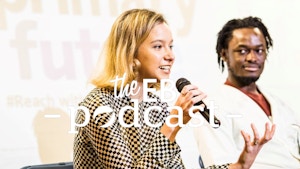#climate science News

Carbon & Climate
Marine conservationist ‘trepidatious’ over role of blue carbon credits in protecting ocean
Prominent aquanaut Fabien Cousteau urges caution in putting a price on marine ecosystems, arguing that too many actors in the blue carbon economy are focused on short-term gain and are out of sync with the way nature works. He called for blue carbon standards and slammed plans to mine the ocean floor as "reckless" without more research.

Tracking 35 planetary vital signs – used to gauge Earth’s response to human activities – researchers found 25 are at record risk levels, including greenhouse gas concentrations, fossil fuel consumption, rising temperatures, forest loss, and biodiversity decline.

Carbon & Climate
AI enhances flood warnings but cannot erase risk of disaster
AI can predict climate change-fuelled floods but communication gaps and lack of investment in data and systems can hobble response.

A report from the Philippine Climate Change Assessment reveals a significant increase in 'Christmas typhoons' and tropical cyclone-induced rainfall in the country over recent decades, with scientists attributing these trends to human-induced climate change.
Carbon & Climate
Warming fuels cyclones, cloudbursts across Asia
Carbon & Climate
Why is the weather becoming more extreme?
Carbon & Climate
Climate scientists sound alarm over Asia’s rising seas
Food & Agriculture
China’s changing fisheries, in numbers
#climate science Opinion

Carbon & Climate
Three ways Pacific nations are adapting to climate change
Pacific Island countries are on the frontline of climate change and are leading the way on adaptation and resilience.

Carbon & Climate
The overshoot myth: you can’t keep burning fossil fuels and expect scientists of the future to get us back to 1.5°C
The idea that we can exceed global warming targets then fix the problem with technology is a dangerous myth, scientists warn.

Carbon & Climate
Rethinking emissions targets in developing countries
In line with the principle of “common but differentiated responsibilities,” low-income countries should be encouraged to implement policies that harness alternative strategies for reducing emissions.

At best, targeted coral interventions – which may not always return reefs to a healthy state – risk squandering money, time and trust in science. At worst, they are a dangerous distraction from the need for drastic emissions reduction.
Carbon & Climate
Climate: The differences between Kamala Harris and Donald Trump
Food & Agriculture
AI can transform global food security and climate action
Carbon & Climate
The 1.5°C target for global warming must prevail
Carbon & Climate
Could the low-carbon economy bill re-write the Philippines' future?
#climate science Videos

EB Studio
From sponge cities to coastal forests, Asia is seeking ways to work with nature and prepare for the risks in a warmer-than-expected future. This Eco-Business video looks at what else cities need to do to strengthen climate resilience.

Gaurav Sant, founder of startup SeaChange, tells Eco-Business about a technology he hopes will give the world's oceans the capacity to absorb additional carbon dioxide from the atmosphere.

Southeast Asia's largest energy consumer has been slow to transition to renewables, but recent policies point to greater expansion of the country's solar, tidal and geothermal energy production.

In the video, environmental law group ClientEarth compares the oil and gas giant's advertisements on its low-carbon investments to a burger chain claiming that they’re vegan because they’ve got salad on the menu.
#climate science Podcasts

Carbon & Climate
‘The problem is not that young people are eco-anxious. It’s that people in positions of power are not’: activist Clover Hogan
Eco-anxiety is a healthy psychological response, says 24-year-old activist Clover Hogan. The founder of nonprofit Force of Nature tells the Eco-Business Podcast how to respond to anxiety in a world that is "numb" to the climate crisis.

Carbon & Climate
‘Five years ago, everyone wanted to be Elon Musk’: Where is climate tech in Southeast Asia now?
Entrepreneur Steve Melhuish tells the EB Podcast where the biggest opportunities to reduce emissions and make money are in Southeast Asia, and why finding the right economic incentives is critical for climate tech startups.

Carbon & Climate
‘Nobody wants to be the bad guy’: Authors of optimistic climate novel say don’t write off oil industry solutions
Former petrochemicals industry executives Steve Willis and Genevieve Hilton have written a novel set 50 years into the future that has a happy ending. They tell the Eco-Business podcast that the book is a pitch to carbon-intensive industries to try workable climate solutions.

Carbon & Climate
‘A 1.1°C warmer world is already a matter of life and death’: Climate scientist Winston Chow
The Singapore scientist, recently elected to the UN's top climate body, tells the Eco-Business Podcast about the precarious state of climate adaptation in developing Asia. The region is not well-prepared to manage the cascading risks of extreme climate events, he says.
#climate science Press Releases

International Association for Agricultural Sustainability
Opening a new chapter for sustainable agriculture development: hybrid event featuring research innovation

Global Reporting Initiative
GRI-SM highlight business case for net zero in 2021 Asean regional e-summit
#climate science Research

Asia Research and Engagement
Charting Asia's protein journey

Asia Research and Engagement
Climate costs for Asia-Pacific ports

British Embassy Manila and Eco-Business
Electric vehicles in the Philippines: Business opportunities, market barriers, and policy signals

WWF International
Behaviour change—save nature please

Conservation International, DBS Bank, National University of Singapore (NUS) and Temasek
The business case for natural climate solutions: Insights and opportunities for Southeast Asia








